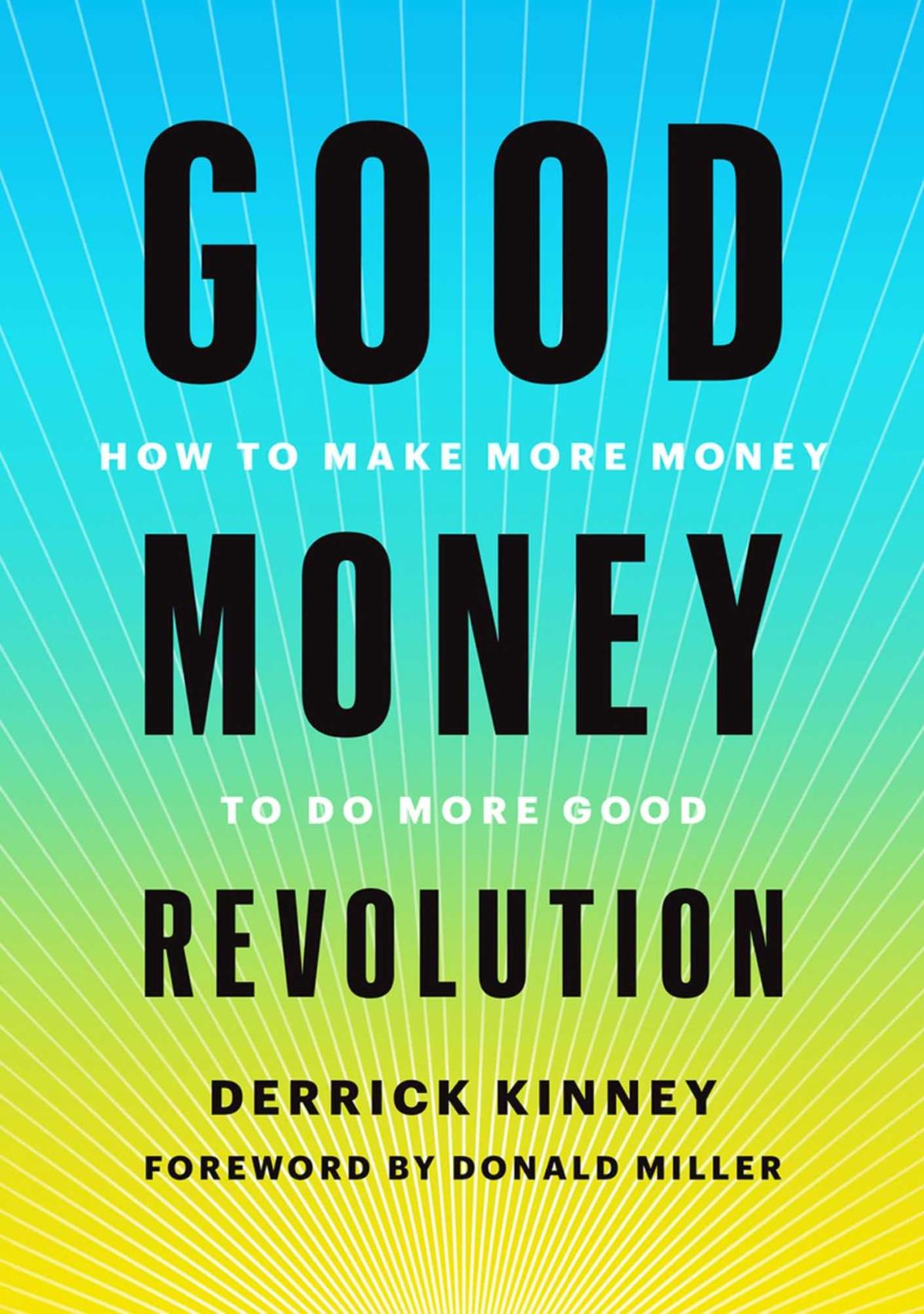As a parent, you want your kids to reach their full potential and make a difference in the world. You know that being successful with money is an important part of achieving that goal. You want them to get a good job, to be able to buy a home, provide for their family, and have a bright future. They deserve every opportunity for success, and you want them to be financially independent. Money is good, and the more your children have, the more good they can do—not only by providing a better-quality life for their own family someday, but by making a lasting impact on the world.

But someone has to teach them how to do that—and that someone can be you. Even if you don’t feel equipped to teach them how to make it, save it, or invest it, I’m about to reveal three life-changing lessons to teach your kids about money. If you teach these lessons to your kids (and to yourself), they can enjoy the life you want for them and the life they want for themselves.
1. Be an Investor, Not a Spender
You’ve told your kids, “Spend less than you earn,” “Avoid credit card debt,” “Save for an emergency,” “Use your money wisely.” That’s all good advice. But how your kids put those ideas into motion has a huge impact on how much wealth they will build.
With each purchase, make a point to answer these questions: “Does this purchase add value?” “Is this an impulse buy, or will I be glad I bought this two weeks from now?” “Do I have enough cash to pay for this—even if I use a credit card to earn the points?”
There are some great places to get a cup of coffee nowadays. If you spend $5 a day on a cup of coffee, that’s $35 per week, $140 per month, and more than $1,800 per year. Expenses add up—and swiping a credit card isn’t always the answer. You still need the cash to pay the bill at the end of the month. When your kids get older, go to college, or live in their first apartment, will they buy new or used furniture? When it’s time to purchase an automobile, will they opt for the new car or a quality pre-owned? The principle is this: Every dollar they spend is an investment in something. Asking these questions lays the groundwork to becoming a savvy spender and a wise investor.
“Like a duck on a June bug,” is what Mrs. Hunt, my high school economics teacher, would say when she wanted us to get focused in her class. Years later, as each of my four children turned sixteen, we got focused fast. Our strategy was to find a quality pre-owned vehicle with low mileage that would carry them through college. I had a 50 percent success rate due to two mistakes. First, I bought a new car with great reviews, but it quickly became unreliable. Second, I purchased an older vehicle that began to rack up repairs soon after we bought it. I learned that pre-owned, low-mileage vehicles from a dependable manufacturer are a better value and last longer. I don’t always make perfect money decisions either.
The lesson wasn’t only that a new car loses significant value the moment you drive it off the lot. The more valuable lesson for myself and my children was to witness the decision-making process—to see what worked and what didn’t and how to negotiate. These skills will serve your children well as they advance in life and could save—or cost—your children thousands.
Evaluating purchases is important, as is the attitude you convey. Telling your children, “Yes, because we budgeted for it,” rather than “No, because it’s not in the budget,” sends a powerful message.
The principle you’re teaching them is this: every dollar they spend is an investment in something that could be working for them. Are they making purchases that gain or lose value? The goal is not necessarily to do one or the other; rather, the goal is learning to make smart decisions after weighing the information.
2. Be a Confident Wealth Builder
You make money twice. First, you work hard to earn it. Then, you work hard to invest it wisely. Build assets. Reduce liabilities. These four words can make you and your children a lot of money. Sounds simple, but few people know how to do it. By placing your hard-earned money into a custom-tailored strategy that includes selected real estate, growth investments, and maybe even building a business of your own, you can build lasting wealth. Making consistent, deliberate decisions is the key to more money.
- Step one: Pay yourself first by setting and forgetting. Set up automatic payroll deductions into your company’s retirement account or an automatic bank draft to move money from your checking account into an investment account on a specific day each month. If you have younger children, open a savings account for them and decide together on an amount they will save from gifts, allowance, and/or small jobs. Commit to that money going to savings first, before any is allowed to be spent.
- Step two: Be a generous giver. Encourage your children to give away 10 percent of the money they receive. They can give to a church, a community organization, or a cause important to them. They could even purchase supplies for a homeless shelter, an animal rescue, or a school-supply drive for disadvantaged kids.
- Step three: Budget, baby! Create a livable budget that encourages your kids to spend less than they earn. Reinforce agreed upon dollar amounts for saving and giving. Encourage them to pay for manageable expenses such as eating out, gas, and entertainment.
3. Be the Creator of Money, Not the Receiver of It
You work hard to provide for your family and to make a better life for your kids than you had growing up. Unless you work for yourself, you receive a steady paycheck from your employer. But you are making money for someone else. You are the receiver of money.
Today’s generation needs to learn that by taking the first steps toward building their own business, they can become the creator of money. You may have never owned a business, so how can you guide your kids? By learning about it together. Suggest that they keep their day job while starting their own side gig. Here’s a modern reality: Job security is no longer a guarantee. Your children are one global event away from losing their employment.
Depending on someone else for your paycheck is placing too much control in someone else’s hands. Teach your kids to begin thinking like a business owner in their current job and begin to take steps to explore their own venture.
Firefighters have modeled this approach for years. Many have launched successful moving and lawn care businesses that they run on their days off. Teachers often develop teaching materials to sell online or start after-school and summer tutoring businesses.
Many parents feel ill-equipped to teach their children about owning a business. You may have never owned a business yourself and have no idea how to even get started.
But you have skills, expertise, experience, and YouTube. There are resources available. You can do this!
My oldest daughter, Lauren, worked at a snow cone stand in high school. She observed that some employees wasted time by staring at their phones, while she always followed the philosophy, “If there’s time to lean, there’s time to clean.” The owner noticed. The following summer, she asked Lauren to be in charge of hiring people, which stretched her. The next summer she was asked to be the social media manager and finally, the daytime manager. Every day after work, we talked about her shift and the things she could do to improve sales and customer retention. Lauren chose to work as if she were an owner. It paid off—with more responsibilities and more money.
Money is a game. Learning and implementing these three money ideas will help your kids win by giving them access to opportunities that will help secure their future and do more good in the world.
(To be continued...)
This excerpt is taken from “Good Money Revolution: How to Make More Money to Do More Good” by Derrick Kinney.
To read other articles of this book, click here.
To buy this book, click here.
The Epoch Times copyright © 2023. The views and opinions expressed are those of the authors. They are meant for general informational purposes only and should not be construed or interpreted as a recommendation or solicitation. The Epoch Times does not provide investment, tax, legal, financial planning, estate planning, or any other personal finance advice. The Epoch Times holds no liability for the accuracy or timeliness of the information provided.





